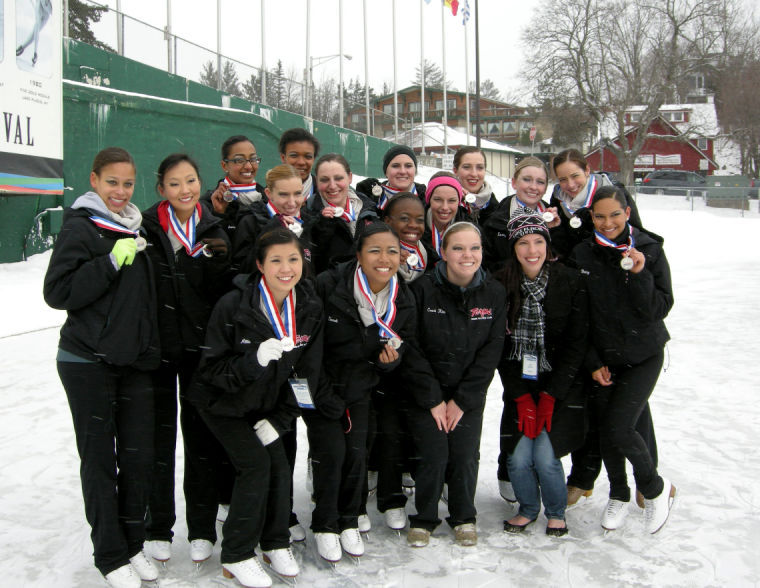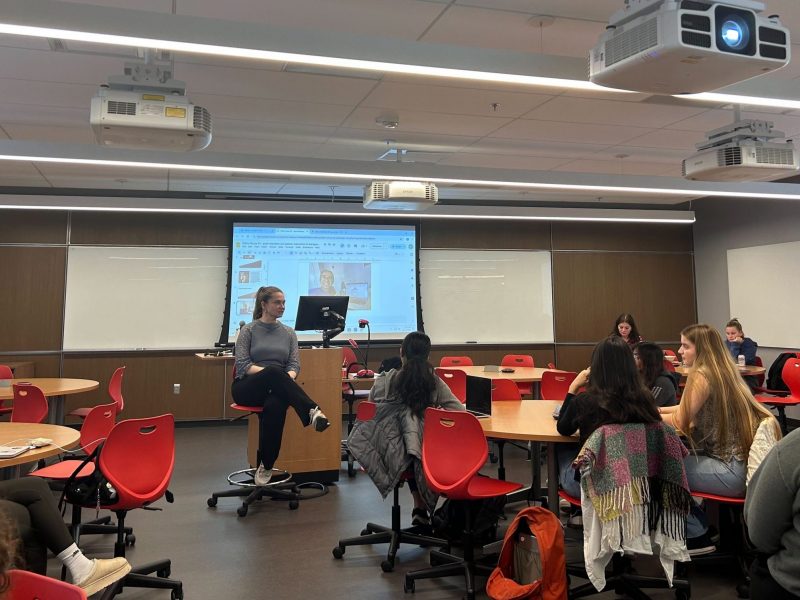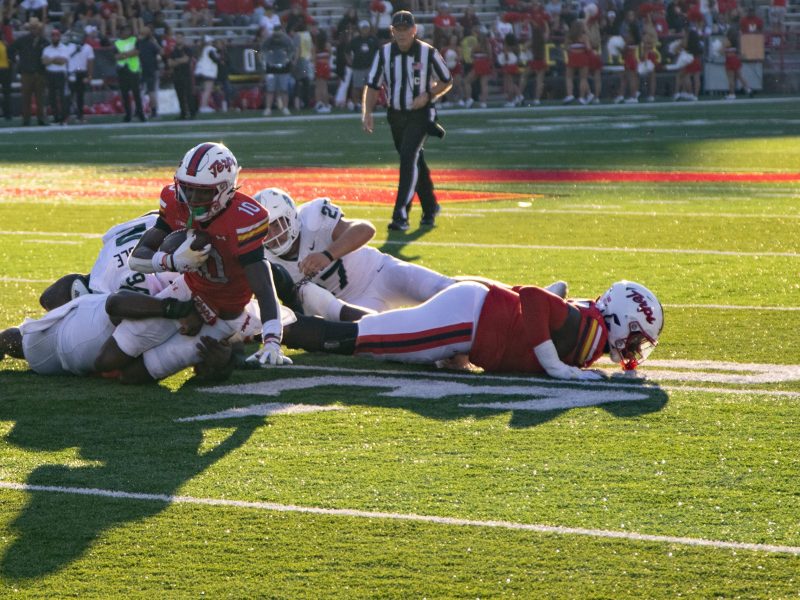
The synchronized skating team took home a silver medal from last weekend’s Eastern Synchronized Skating Sectional Championships.
No words sum up the synchronized ice skating team’s trip last weekend better than Murphy’s Law: Anything that can go wrong will.
Between lost luggage, a missed flight and bad weather, the club’s journey to upstate New York was an adventure of its own. But that didn’t stop it from taking home a silver medal, placing second in the 2013 Eastern Synchronized Skating Sectional Championships in Lake Placid, N.Y.
Teams from all over the East Coast turned out for the sport’s biggest competition of the year, in one of its most important cities. Lake Placid was the host of the 1932 and 1980 Winter Olympics, and the team competed on the same rink the 1980 United States Olympic hockey team played on when it defeated the Soviet Union in the game that inspired the movie Miracle.
It’s an important victory for the university’s team, but it’s not the win itself that is so impressive — it’s what it took to get there.
“In about 17 years, I have never seen it quite like this,” coach Carli Jenkins said.
The skaters trained for the championships for hours each week, returning to the campus early after winter break to prepare for the last and most important competition of the season.
As planned, the team left College Park early Feb. 1, eager to get on the ice at Lake Placid. The trip was only supposed to take a few hours — a short flight to Philadelphia, a connecting flight to Vermont and an hour-long drive would get the team to Lake Placid by midday.
The coaches were already there, booking practice time on the ice and waiting for the team’s arrival. But things started to fall apart at the airport when the team’s plane was delayed.
“When we got to Philadelphia, we found out that our flight had left,” said Sundi Myint, a sophomore computer science major. “The pilot had not led us to believe that our flight would be gone when we got there.”
For most people, attempting to get travel plans back on track after a missed flight is an arduous task. But with more than a dozen skaters involved, the task was nearly impossible.
“It’s really hard to get 16 people on a plane that’s already been booked,” said Brittany Greene, a sophomore bioengineering major.
There were no flights to Vermont with the number of open seats the team needed, and team members were unable to contact university officials. Club teams require the approval of Campus Recreation Services to make adjustments to travel plans, and at the crucial time, their contacts were in a conference.
Team members said the delay wasn’t even the worst part — real panic set in when the airline lost their luggage, containing their costumes, makeup and skates.
Several hours after they were supposed to be in Lake Placid, the team hitched a flight to Boston and, upon arrival, was told several bags were missing. One was in North Carolina, and two were still in Washington.
Unlike regular shoes, a personal pair of ice skates can’t be replaced easily. They can cost more than $1,000, and the blades and frame are specially molded to a skater’s feet and shaped by the way they move on the ice.
“It’s kind of like when your pet dies. You can get a new pet, but it’s not quite the same,” Myint said. “Skates are very personal — you put a lot of time and effort into breaking them in, and no pair will ever be the same.”
Meanwhile, coaches Jenkins and Kim Eddy nervously waited in Lake Placid. Each team gets time to practice on the unfamiliar ice, and Eddy and Jenkins had to push back the girls’ practice time twice.
“We had minimal contact with the girls as they were flying and driving all over the place,” Jenkins said. “In the past, maybe one person might get delayed or one bag might get lost, but we’ve never had an entire team.”
It was late when the team finally arrived in Lake Placid. They were still a few bags short and exhausted from the six-hour drive from Boston. It didn’t matter how tired or stressed they were, though. Come 7 a.m., they had to be ready to compete.
“Even though we had prepared for this the entire season, it felt like everything was falling apart and all the odds were against us,” Greene said.
“I think tensions were really high, and everyone was really stressed out,” Myint added. “It came out in how we reacted to each other and how we were tired, and I think the hardest part was trying to get people to be happy, be excited, be relaxed.”
The team easily could have gone home or given up. They could have lost everything.
“Not having any control over the situation was really stressful,” Jenkins said. “But at the same time, we were kind of joking that despite all of this, they’re probably going to pull out an awesome performance.”
Running on little more than three hours of sleep, airport food — which “is not real food,” Greene said — and the cheers of the audience, they somehow managed to get onto the ice.
“I don’t know if anyone really thought we could do it. We wanted to do it, but it seemed kind of far-fetched at that point,” said Lauren Daly, a senior English and French major. “But we knew we just had to do our best because we didn’t come all this way to throw it all away.”
Their success didn’t really hit Myint until they received their medals in the Olympic oval with Jenkins, herself a synchronized skating champion.
“It was a very emotional weekend,” Myint said. “Being able to skate out onto the Olympic oval and receive our medals — it’s a legendary place, and I think that’s one thing that will always stick in our memories, more so even than our travel.”



